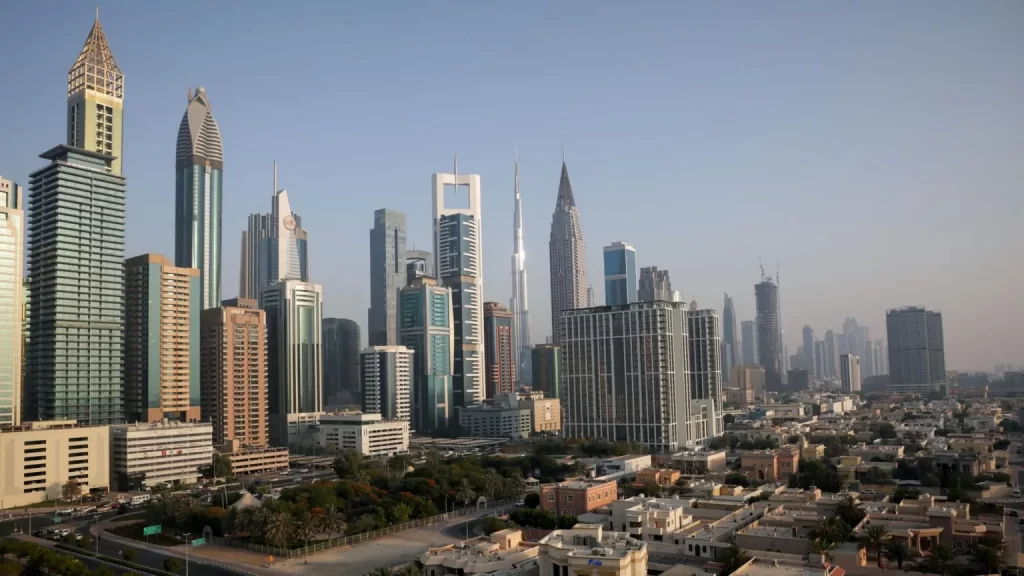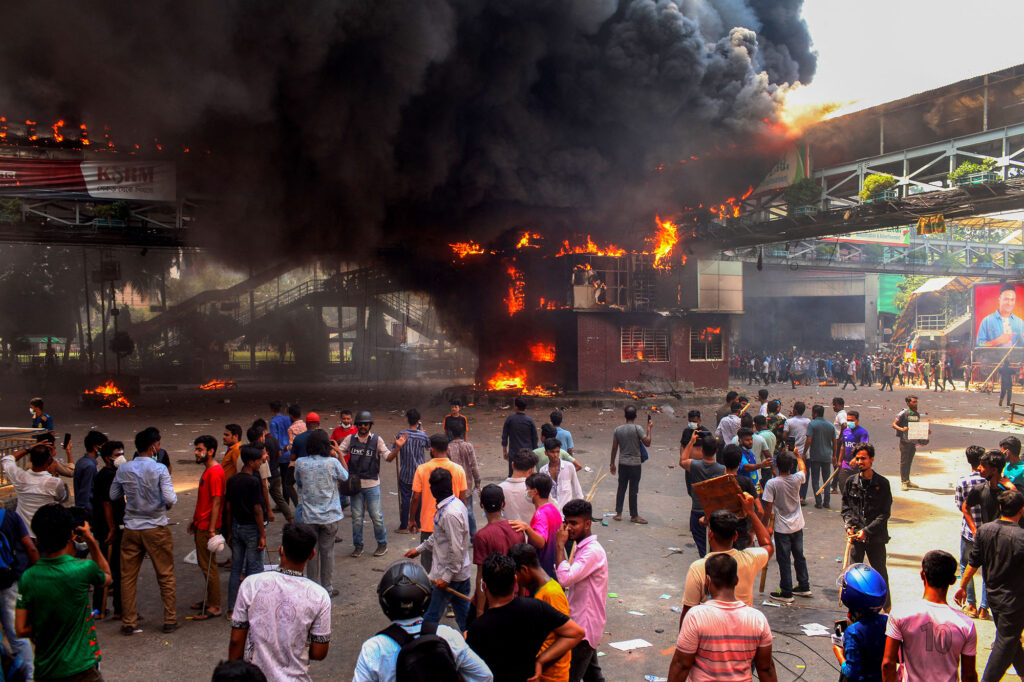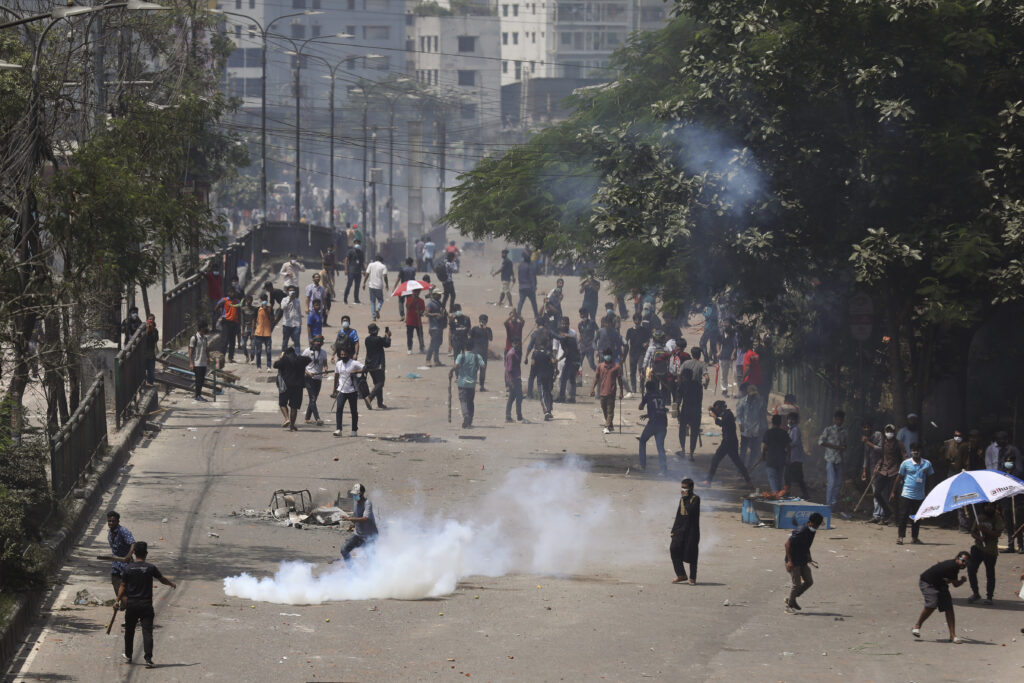A court in the United Arab Emirates (UAE) has handed down severe prison sentences to 57 Bangladeshi nationals for their involvement in protests against the government. This decision has sparked widespread condemnation from international human rights organizations.

On Friday, three of the unnamed defendants were sentenced to life imprisonment for “inciting riots in several streets across the UAE.” The remaining 54 defendants received sentences ranging from 10 to 11 years. These harsh sentences were reported by the state-run WAM news agency.
During the trial held on Sunday, the court-appointed defense lawyer argued that the gathering of the protesters had no criminal intent and that the evidence presented was insufficient to support the charges. Amnesty International condemned the UAE’s “extreme reaction to the mere existence of a public protest,” highlighting the restrictive environment for free expression in the Gulf state.

Protests are effectively illegal in the UAE, where foreigners constitute almost 90% of the population. Among the expatriate groups, Bangladeshis are the third largest. The UAE’s strict laws against public demonstrations are seen as a measure to maintain order and security, but they also severely limit the ability of expatriates to express dissent.
This incident is particularly notable against the backdrop of ongoing unrest in Bangladesh. In recent weeks, more than 150 people have been killed, and over 500 have been arrested during violent clashes sparked by student-led demonstrations against government job quotas. The protests in Bangladesh have highlighted widespread dissatisfaction with the current administration’s policies.
On Monday, some of the protest leaders in Bangladesh issued a 48-hour ultimatum to the government, demanding the lifting of a nationwide curfew and the restoration of internet services. They also called for the resignation of officials responsible for the violence against demonstrators.

The UAE trial and the sentences handed down to the 57 Bangladeshis come at a time when Sheikh Hasina, Bangladesh’s Prime Minister, is facing one of the most serious challenges of her 15-year tenure. The unrest in Bangladesh and the response of the UAE authorities to the protests within their borders underscore the complex interplay of politics, security, and expatriate rights in the Gulf region.
During the UAE trial, it was revealed that the defendants had organized large-scale marches in several streets of the UAE, protesting against the Bangladeshi government. The charges brought against them included incitement of public security, obstruction of law enforcement, and participation in riots. The court found that the group had ignored police warnings to disperse, leading to their arrest and subsequent prosecution.
The UAE court dismissed the defendants’ defense and ordered that they be deported upon completion of their sentences. This decision has raised concerns about the treatment of expatriates in the UAE and the broader implications for civil liberties in the region.



